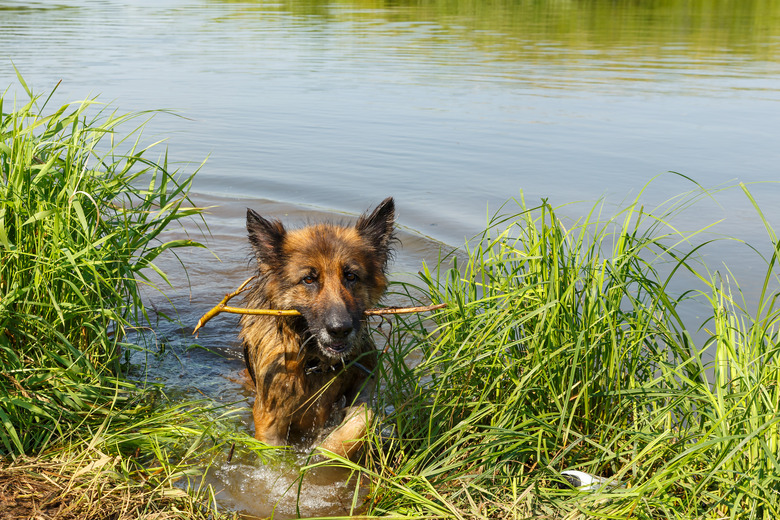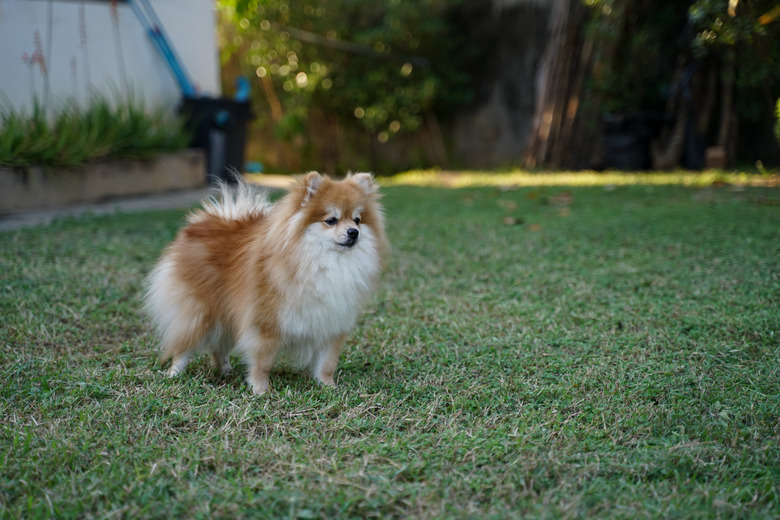Side Effects Of Leptospirosis Vaccine For Dogs
Leptospirosis (lepto for short) is a potentially life-threatening bacterial disease that can affect the kidneys and liver of dogs. There is a vaccine to help protect your pet from infection, but as with any vaccination, there are some risks and side effects, so do your research, talk to your veterinarian, and consider the pros and cons to decide what's best for your companion.
What is leptospirosis in dogs?
What is leptospirosis in dogs?
Leptospira bacteria, which are found all over the world, are the cause of leptospirosis. There are multiple strains of the bacteria, and a dog can become infected in various ways, such as if they have wounds that are exposed to contaminated soil or water or if they drink contaminated water.
Leptospirosis affects mammals, including humans, and it can spread from one species to another. Rodents and other wildlife can be carriers of the bacteria. When infected animals urinate, the lepto bacteria could survive in soil and water potentially for months.
Remember that the bacteria can get into a dog's body through wounded skin as well as mucus membranes, not just through direct ingestion of contaminated material. So, even if your dog just walks through or sniffs a contaminated area, they might get infected.
Leptospirosis symptoms can be severe, and the disease could lead to ailments like jaundice, kidney failure, and liver failure, so prevention is key.
How does the lepto vaccine for dogs work?
How does the lepto vaccine for dogs work?
There are many serovars (types) of Leptospira bacteria. The current lepto vaccine provides protection against the four that are most common.
The vaccine works by introducing killed bacteria, giving your dog's immune system a chance to learn how to fight them and create antibodies. That way, infection can hopefully be prevented if exposure occurs.
Previous generations of the vaccine only protected against two serovars and were associated with more severe side effects, including anaphylactic reactions. The current vaccine has a lower risk of side effects. More specifically, adverse reactions occur at less than 53 incidences per 10,000 doses administered.
Leptospirosis vaccine schedule for dogs
Leptospirosis vaccine schedule for dogs
The canine leptospirosis vaccine isn't a core vaccine required for all dogs. Veterinarians might only recommend it if a dog is at risk of contracting leptospirosis.
Because of the prevalence of urban and suburban wildlife, such as rodents, most dogs in North America are considered at risk. Therefore, it's wise to discuss vaccination benefits and drawbacks with your veterinarian.
Here is the schedule for the noncore Leptospira (killed) 4-serovar vaccine:
- Beginning at 12 weeks of age, a puppy can receive two doses two to four weeks apart.
- Dogs older than 16 weeks of age can receive two initial doses two to four weeks apart.
- After the second dose, another dose is given within one year.
- Booster shots are given annually.
Cost of the lepto vaccine for dogs
Cost of the lepto vaccine for dogs
The cost of a leptospirosis vaccine for dogs will vary from one veterinarian to the next. On average, the price might be around $40. This might not include additional fees that a veterinarian may charge, such as those for examining your pet and ensuring they're a good candidate for vaccination.
Manufacturers of the lepto vaccine for dogs
Manufacturers of the lepto vaccine for dogs
When it comes to the leptospirosis vaccine, options include:
- Nobivac Lepto4 from Merck Animal Health
- Nobivac Edge Lepto4 from Merck Animal Health
- Recombitek 4 Lepto from Merial
- Vanguard L4 from Zoetis
- LeptoVax4 Ultra Duramune 4L from Elanco
Side effects of the leptospirosis vaccine for dogs
Side effects of the leptospirosis vaccine for dogs
Talk to your veterinarian to know what to expect after your dog receives this vaccine. Leptospirosis vaccine side effects, if they occur, are typically mild. They might include:
- Lethargy
- Loss of appetite
- Skin rash
- Soreness and/or swelling at the injection site
If your dog receives other vaccines at the same time, they might experience side effects related to the other injections as well.
Lepto vaccine dangers for dogs
Lepto vaccine dangers for dogs
Some dogs might have an allergic reaction or develop anaphylactic shock. Symptoms of a serious reaction include:
- Vomiting
- Diarrhea
- Facial swelling
- Difficulty breathing
- Hives
- Collapse
Ask your veterinarian about the range of side effects that might occur after vaccination so you can keep an eye out for problems and help your dog right away if necessary.
What to do when your dog experiences lepto vaccine reactions
What to do when your dog experiences lepto vaccine reactions
If any symptoms arise and you aren't sure if they're normal, if side effects don't resolve when they should, or if serious side effects occur, contact your veterinarian for instructions on what to do to help your pet. Serious allergic reactions will usually happen within minutes to an hour after a dog receives the vaccine. An allergic reaction is an emergency situation, so contact your veterinarian immediately.
Preventing and treating leptospirosis in dogs
Preventing and treating leptospirosis in dogs
When exercising your dog outdoors, help prevent exposure to the bacteria that cause leptospirosis. For example, dog owners are wise to not let a dog come into contact with wildlife and bring clean water for a pet to drink while preventing them from drinking, sniffing, and walking through puddles of water or mud that might be contaminated..
Vaccinating your dog against leptospirosis may help stop infection, but it isn't foolproof. The vaccine is formulated to protect against the most common types of lepto bacteria, but it doesn't cover them all. In addition, it only offers short-term protection, so vaccinated dogs will need to be boosted annually.
Leptospirosis is treated with antibiotics and intravenous fluids. Early diagnosis and treatment are important and may help prevent organ damage.
The bottom line
The bottom line
Canine leptospirosis is a threat that should be taken seriously by pet owners, especially since it's a zoonotic disease that can be spread to humans. There are things you can do to help prevent infection. In addition to keeping your dog safe when spending time outside, you can ask your DVM about the leptospirosis vaccine. By considering its benefits, potential mild side effects, severe side effects, and the overall risk of your dog coming into contact with Leptospira bacteria, you can determine if the vaccine is right for your pet.



